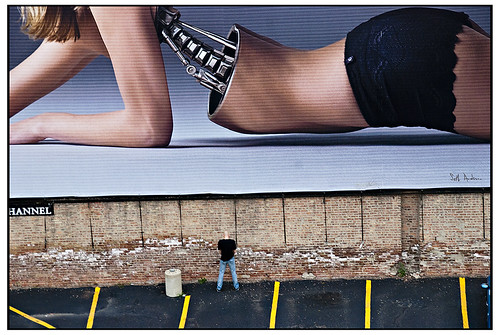This is what happens when you let Republicans and Corporatist Democrats control Congress: there are real consequences to real people, and death panels for all of us.

Jennifer Hall-Massey knows not to drink the tap water in her home near Charleston, W.Va. In fact, her entire family tries to avoid any contact with the water. Her youngest son has scabs on his arms, legs and chest where the bathwater — polluted with lead, nickel and other heavy metals — caused painful rashes. Many of his brother’s teeth were capped to replace enamel that was eaten away.
Neighbors apply special lotions after showering because their skin burns. Tests show that their tap water contains arsenic, barium, lead, manganese and other chemicals at concentrations federal regulators say could contribute to cancer and damage the kidneys and nervous system.
“How can we get digital cable and Internet in our homes, but not clean water?” said Mrs. Hall-Massey, a senior accountant at one of the state’s largest banks.
…
When Mrs. Hall-Massey and 264 neighbors sued nine nearby coal companies, accusing them of putting dangerous waste into local water supplies, their lawyer did not have to look far for evidence. As required by state law, some of the companies had disclosed in reports to regulators that they were pumping into the ground illegal concentrations of chemicals — the same pollutants that flowed from residents’ taps.
But state regulators never fined or punished those companies for breaking those pollution laws.
This pattern is not limited to West Virginia. Almost four decades ago, Congress passed the Clean Water Act to force polluters to disclose the toxins they dump into waterways and to give regulators the power to fine or jail offenders. States have passed pollution statutes of their own. But in recent years, violations of the Clean Water Act have risen steadily across the nation, an extensive review of water pollution records by The New York Times found.
In the last five years alone, chemical factories, manufacturing plants and other workplaces have violated water pollution laws more than half a million times. The violations range from failing to report emissions to dumping toxins at concentrations regulators say might contribute to cancer, birth defects and other illnesses.
[Click to continue reading Toxic Waters – Clean Water Laws Are Neglected, at a Cost in Suffering – Series – NYTimes.com]
If you haven’t read this article, you should. There’s also an interactive chart at the NYT worth browsing. There is no money allocated to investigate polluters so that polluting companies can make slightly more profit. Is it worth it?
500,000 violations in five years – that’s a lot of un-investigated crime. If a person committed this many affronts to society in five years, jail would be in their future. A corporation? Not much of a consequence. I say take away their corporate charters, dissolve the company, sell its assets. If the corporation fulfills a needed role in the economy, new, more law-abiding corporations will take the place of the miscreants.
For a closer look at some of the offenders, check out this chart, sortable by zip code, or city, or state. For instance, in Chicago, in the last five years, there are 146 facilities that have permits to discharge pollutants. Of these, zero have been fined, although some have not had their sites inspected since 1978. Hey, see no evil, right?
Like
Mwrdgc Calumet Wrp 400 East 130th Street, Chicago, Illinois 60628
$0 Total Fines
Total Inspections: 17
Last Inspection: May 10, 1979
Classification: Sewerage Systems
13 Violations
This facility has been out of regulatory compliance 6 of the past 12 quarters.
so, out of compliance more often than not in the last four years, yet hasn’t actually had an on-site inspection in more than thirty fracking years. Lovely.
Illinois in general, per the NYT investigation, has 7,304 facilities that are permitted to release some toxic materials into the environment, but of these, again most have not been inspected in many, many years, if ever, despite having thousands of violations cited against these companies. Only three sites have actually had fines levied against them:
Equistar Chemicals, Lp Morris , last inspected – Oct. 4, 1978 – 5 violations fines totaling: $714,200
Mg Industries Mapleton last inspected – Feb. 16, 1995 – 1 violation, fine totaling: $383,501
Kmart Distribution Ctr 8289 Manteno No Information re: last inspection, fine of $102,422
I suspect there is a lot of pollution being released that nobody in the EPA knows about. How about in your state? Aren’t you curious how bad your water is after reading paragraphs like:
In some cases, people got sick right away. In other situations, pollutants like chemicals, inorganic toxins and heavy metals can accumulate in the body for years or decades before they cause problems. Some of the most frequently detected contaminants have been linked to cancer, birth defects and neurological disorders.
Records analyzed by The Times indicate that the Clean Water Act has been violated more than 506,000 times since 2004, by more than 23,000 companies and other facilities, according to reports submitted by polluters themselves. Companies sometimes test what they are dumping only once a quarter, so the actual number of days when they broke the law is often far higher. And some companies illegally avoid reporting their emissions, say officials, so infractions go unrecorded.
Environmental groups say the number of Clean Water Act violations has increased significantly in the last decade. Comprehensive data go back only five years but show that the number of facilities violating the Clean Water Act grew more than 16 percent from 2004 to 2007, the most recent year with complete data.
Footnotes:





























